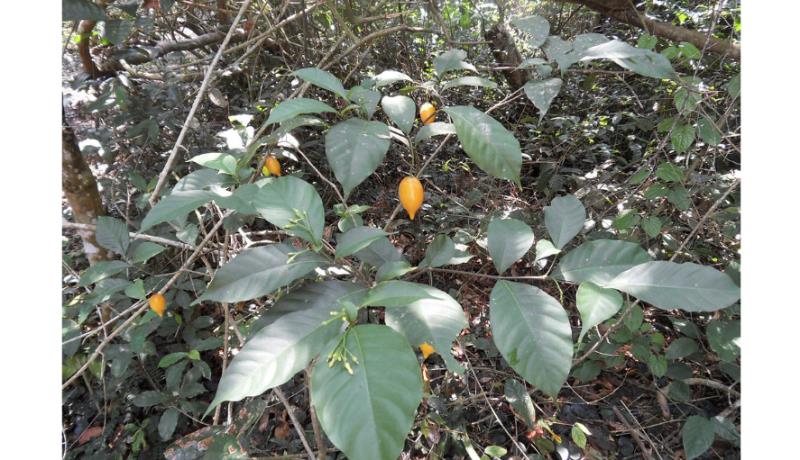Ibogaine, a naturally occurring psychoactive substance derived from the African Tabernanthe iboga plant, is gaining recognition in the West, particularly in upscale retreats, for its remarkable capacity to address addiction, depression, and anxiety.
This article delves into the application of ibogaine in high-end retreats and its efficacy in treating various mental health conditions. Then, you may find out the ibogaine treatment cost.
Emergence of High-End Ibogaine Treatment Centers
High-end retreats offering ibogaine therapy are becoming havens for individuals seeking an alternative and holistic treatment for addiction and mental health issues. Set in tranquil, picturesque locations, these centers sharply contrast traditional rehabilitation facilities. They focus on individualized care, luxurious amenities, and a peaceful environment conducive to healing and self-reflection.
These retreats typically involve comprehensive pre-treatment evaluations, closely supervised ibogaine treatment phases, and extensive post-treatment support. The focus is on providing a nurturing and supportive environment, ensuring clients receive both the physical and emotional care required during treatment. Additionally, these centers often incorporate adjunct therapies like mindfulness practices, yoga, and nutritional guidance to treat the individual holistically, addressing more than just the symptoms of addiction.
Understanding Ibogaine’s Therapeutic Action
Ibogaine’s effectiveness in addiction treatment lies in its unique ability to act on various neurotransmitter systems simultaneously. It primarily influences the brain’s opioid receptors, which play a crucial role in addiction, particularly to substances like heroin and prescription opioids. Ibogaine is known to alleviate withdrawal symptoms and reduce cravings, making it a valuable tool in addiction therapy.

Moreover, ibogaine induces a psychoactive state that allows individuals to confront psychological and emotional aspects of their addiction. This introspective journey often leads to significant insights and a reevaluation of past traumas and life choices, facilitating a deeper level of healing.
Impact on Depression and Anxiety
Apart from its anti-addictive properties, ibogaine has shown promise in treating mood disorders like depression and anxiety. The compound’s ability to reset brain chemistry and promote neuroplasticity aids in improving mood and alleviating symptoms of depression and anxiety. Clients often report a renewed sense of hope and a more positive outlook post-treatment.
The Luxury Retreat Experience
The luxury retreat experience with ibogaine treatment is designed to provide medical care and a rejuvenating and transformative experience. These retreats blend the therapeutic aspects of ibogaine with the comfort and exclusivity of a high-end facility.

Clients enjoy private accommodations, gourmet meals, and various recreational activities, all while surrounded by natural beauty and tranquility. This setting helps in fostering a more profound and lasting recovery.
Safety and Supervision
Safety is a paramount concern in ibogaine treatments, given the substance’s powerful effects. In luxury retreats, medical professionals closely monitor the treatment process, ensuring that ibogaine is administered safely and effectively. Pre-treatment medical screenings are essential to evaluate the client’s health status and tailor the treatment accordingly. Continuous monitoring during the treatment helps manage any adverse effects and ensure the client’s well-being.
Navigating Ethical and Cultural Dimensions in Ibogaine Usage
The rising popularity of ibogaine for therapeutic purposes brings to the forefront the need for ethical and cultural mindfulness. Originating from the African spiritual context, ibogaine’s integration into Western therapeutic practices demands respect for its traditional roots. Luxury retreats utilizing ibogaine should strive to balance modern therapeutic applications with a deep reverence for its indigenous heritage. This involves educating clients about the substance’s cultural background and ensuring its procurement and use are not detrimental to the native communities and ecosystems. Ethical considerations should also extend to the sustainable harvesting of the iboga plant, preserving its availability for future generations. Adhering to these ethical guidelines, luxury retreats can offer a healing experience that respects the cultural origins of ibogaine and the environment.
Ibogaine’s Prospects in Contemporary Mental Health Care
Looking ahead, the role of ibogaine in contemporary mental health care is both promising and dependent on ongoing research and legal developments. While existing anecdotal evidence and early studies highlight its potential in treating mental health disorders, comprehensive scientific research is essential to establish its efficacy and safety fully. The legal status of ibogaine, currently a controlled substance in many countries, significantly influences its availability and use.
Supported by robust scientific research and ethical practices, advocacy efforts are key to altering policies and perceptions surrounding ibogaine. As our understanding of ibogaine’s therapeutic benefits grows, and legislative landscapes shift, it could increasingly become a viable and mainstream option in mental health treatment, offering new avenues for addressing complex disorders like addiction, depression, and anxiety.
Conclusion
Ibogaine treatment in luxury retreats represents a groundbreaking approach in the field of addiction and mental health therapy. By combining the therapeutic potential of ibogaine with the comfort and care of a high-end retreat, these centers offer a compelling alternative to traditional treatment methods.
The unique blend of medical care, luxury, and holistic therapy provides an environment where individuals can focus on their recovery and personal growth. As ibogaine treatment continues to gain recognition, it holds the promise of transforming lives and offering new hope to those struggling with addiction, depression, and anxiety.

